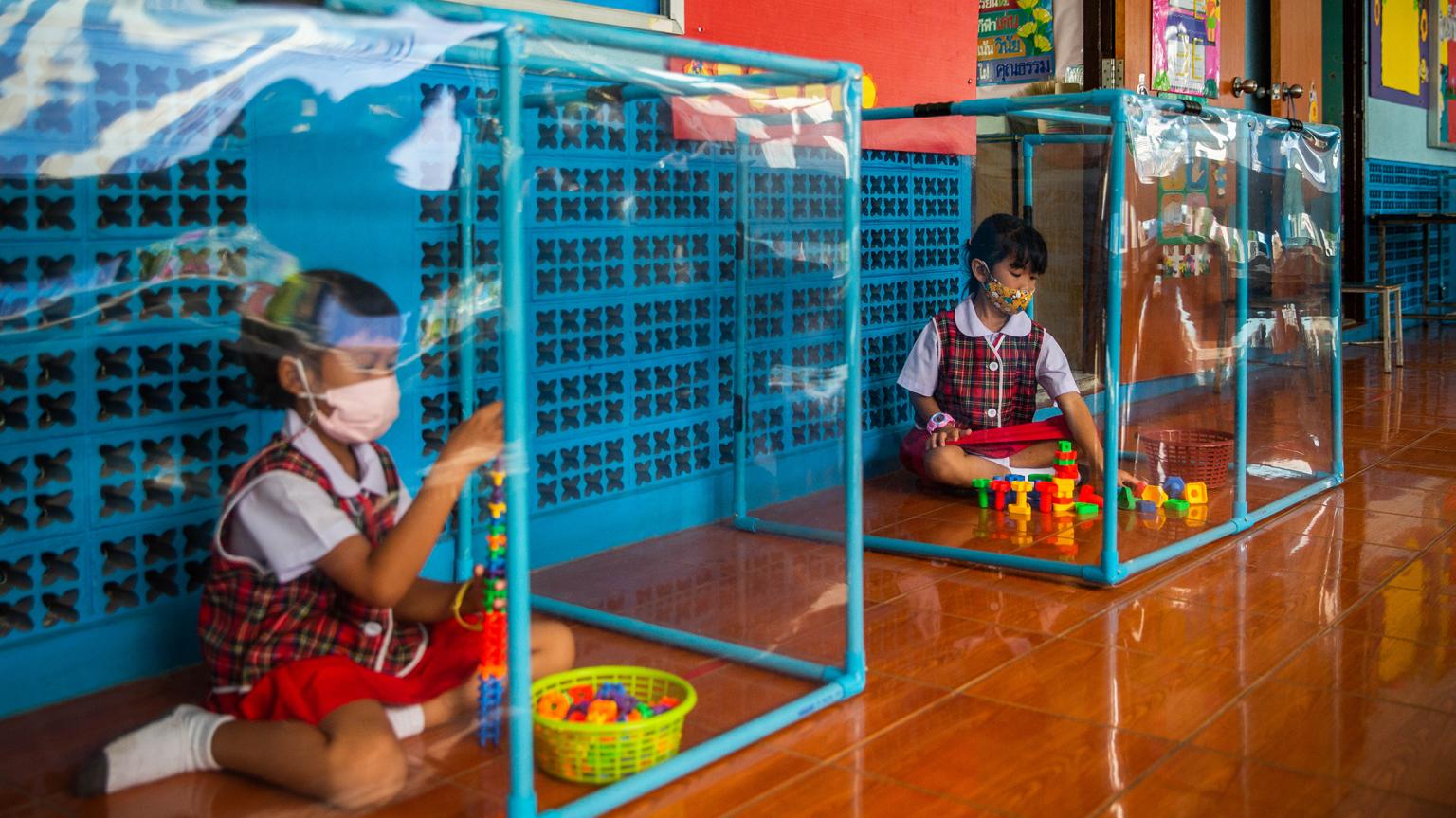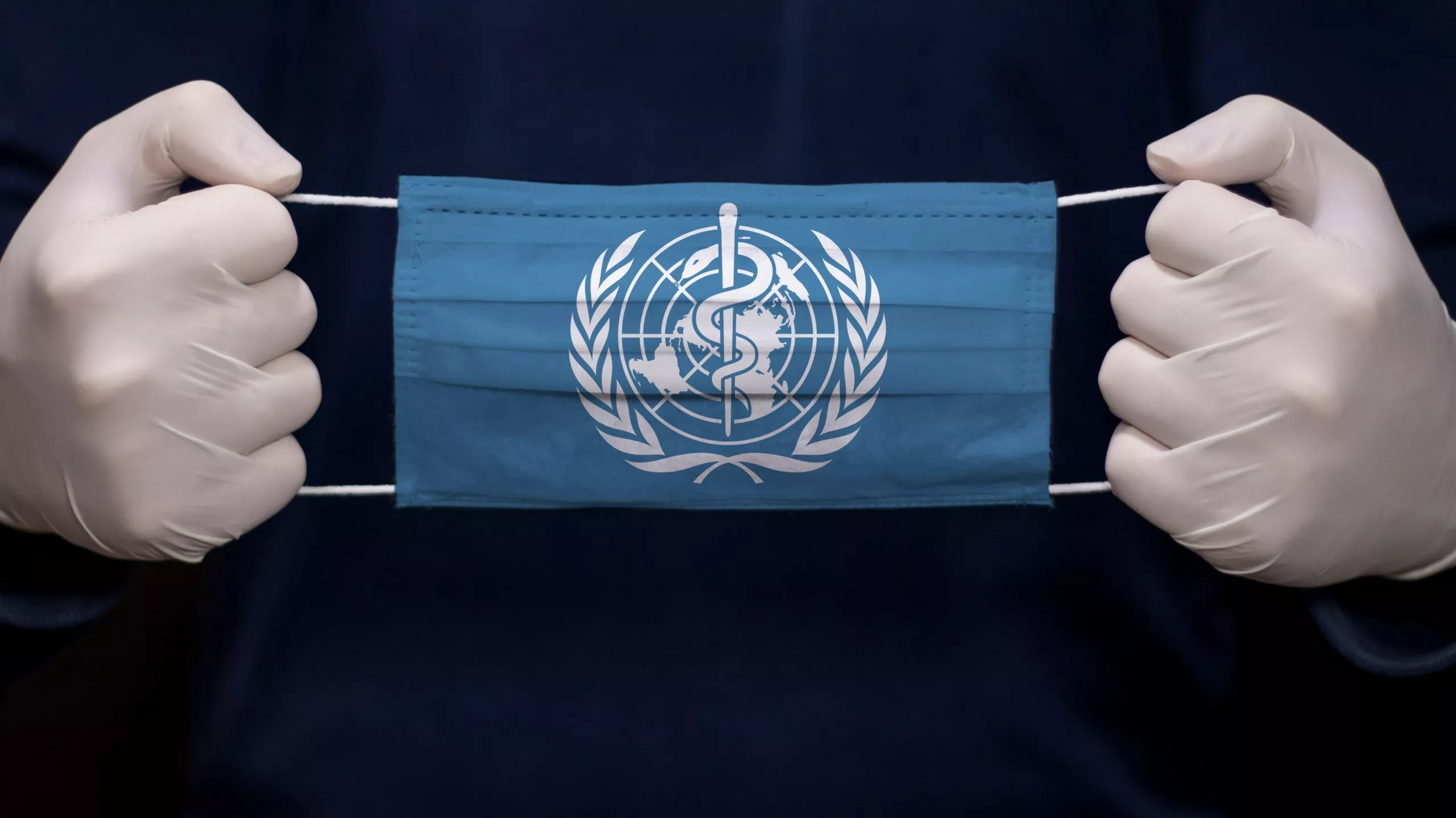The World Health Organisation and Unicef have said schools in Europe must do everything possible to remain open, in spite of the Delta variant being dominant in the region. The Guardian has more.
“The pandemic has caused the most catastrophic disruption to education in history,” said Hans Kluge, the head of the WHO’s Europe region. “It is vital that classroom-based learning continues uninterrupted.”
Kluge said that while the pandemic continued, “educating children safely in a physical school setting” was of “paramount importance for their education, mental health and social skills”, and must become “a primary objective” for governments.
44 out of 53 countries in the WHO’s Europe region closed their schools nationwide at the height of the pandemic’s first wave in April 2020, and while most reopened that September, surging infection rates sparked new restrictions and more closures in dozens of countries during the autumn and winter.
Mass absences and frequent school closures have continued in several countries through the spring and early summer, with more than one million children, or 14.3% of the age group, out of school for Covid-related reasons – either self-isolating or because their school was closed – in England in late July.
“We encourage all countries to keep schools open, and urge all schools to put in place measures to minimise the risk of COVID-19 and the spread of variants” throughout the new school year, Kluge said in a joint statement with the Deputy Regional Director of the U.N. Children’s Fund for Europe and Central Asia, Philippe Cori.
Worth reading in full.
This is a positive development, save for the fact that Kluge and Cori recommend frequent testing of pupils and staff as a way of keeping schools ‘safe’ without explaining how to avoid pupils who test positive and those in their ‘bubbles’ being sent home for 10 days at a time.











To join in with the discussion please make a donation to The Daily Sceptic.
Profanity and abuse will be removed and may lead to a permanent ban.
the true objective is surely to get to all children injected with the experimental shit. Doesn’t matter about keeping anyone “safe” as it’s not about a virus.
Children must learn to be jabbed.
Anything else is a bonus.
Or jabbed to learn? Not that schools are a good place to learn, unless you want them to learn to be compliant and not think for themselves.
What I don’t get though is what do the teachers’ unions have to gain from the jabbing of children? It’s obvious enough what the doctors have to gain, but the teachers? Are the teachers’ unions not in fact looking out for the teachers’ interests but working for some other agenda? I could understand the teachers’ unions wanting to keep the schools closed to give the teachers an extra holiday, but instead they seem to be pre-occupied with getting the children jabbed in lock-step with the WHO etc.
“Are The Unions Running The Country?”
http://participator.online/articles/2021/08/are_the_unions_running_the_country_20210829.php
Clearly, senior union officials have been in receipt of brown envelopes from Billy boy’s people.
The constant arguing between government and the teaching unions is just theatre.
You may be right, but it would be good to have some hard evidence of that if it is indeed the case.
The teachers’ unions have lost their minds to the Covid Craziness as much as many other sectors of society. The New South Wales state government in Australia (now in 10-week, and counting, lockdown) has recently mandated the jabbies for all state and private school teachers (and non-teaching support staff) if they want to keep their job. The NSW teachers union has just come out in support of No Jab, No Job for their members.
As a life-long unionist and shop steward, and (very minor) union office-holder, and a former high school teacher, I am utterly dismayed by how the teachers’ unions have lost their marbles, spooked out their minds by a virus which children don’t get and transmit, and, even if they did, would be innocuous to teaching-age adults.
In despair,
Phil, South Australia
I was thinking about it from a conspiratorial point of view when I wrote the above comment, but on calmer reflection I think you’re probably right, the unions may just simply have fallen for the propaganda on the whole. Being of the left they probably just accept what the left leaning media tells them to think.
I’ve known several teachers in my life, the majority of whom I wouldn’t trust to teach my children how to put the lids back on pens. The general perception of teachers as national heroes providing education and enlightenment to the younger generations is complete hogwash. Most enter schools straight from academia with no real experience outside their compulsory school classroom hours, ergo most are wokeydokey alt-left jellyheads who automatically defer to the perceived authority of state run institutions, especially where it provides them with an excuse to either moan about their ‘struggles’ and/or dodge their responsibilities. Teachers should be rallying against the government imposed disruptions to our children’s education. Where are they? At home in their dressing gowns completing netflix.
Is it correct that school children in Sweden are NOT tested and If a child is unwell with symptoms they are not tested but are sent home to recover – no other children are tested or sent home?
This simple system works well in Sweden – for what reason would it not work here or anywhere else?
Because it would undermine the narrative / propaganda and intentional disruption, and people would stop being afraid and hence compliant.
The only problem wrt reopening schools as planned is the teacher’s unions invariant.
While we’re at that, I have a nice money-saving suggestion: Redirect whatever funding the WHO might receive to something sensible, say, repairing pot holes. They can surely survive as subscription and advertising based service for those who enjoy the press releases. If not, nobody will miss them.
Yes, what does the WHO actually do, apart from making fans of one-world-government feel all warm and fuzzy inside?
When they’re not busy eradicating diseases, they do stuff like publishing statistics claimed to prove that people drinking milk will die of cancer and stuff like that.
It turns out they’re quite good at providing cover for global depopulation programs, providing the money is right and correctly funneled to the relevant Swiss bank accounts
Awh, don’t the WHO come across as warm and cuddly, only thinking of the children.
They have realised that children not in school might, just might, develop some feral thinking and that would never do. Better to have them in class were they can be tormented sufficiently to be ready for their Orwellian future.
Actually how we run our schools has FA to do with the WHO.
It was the generation that was kept out of school during the Cultural Revolution in the late 60s that carried out the Tiananmen protests in 1989.
hope the photo is just a covid promotional
I think it’s for real, from life. It’s an old picture from last year, that illustrated what measures had been taken in at least one kindergarten in one East Asian country.
If they’re putting them in coops they should at least have a bowl of water in there, and a six foot run.
Yes, I remember it from last year. Thailand, was it?
Official child abuse, sickening. That done 18 months ago would have had the authorities and social services prosecuting the offenders. How did times change?
We can’t stop testing children. Where would the income streams be for the testing companies?
Is this genuine concern re childrens education or the fact that they can’t vaccinate them if they’re not in school?…I know which I believe.
It’s a reminder that the terrible pandemic is still ongoing and that testing of healthy people, especially, continuous high-frequency testing of healthy pupils, must continue lest someone could fail to notice this.
Considering that the testing procedure is reportedly physically unpleasant, one could also interpret this as WHO demands children be tortured.
That is what this is about – torturing the children so that when they leave school they will simply Obey.
Amy teachers reading this? Do they really give a shit? What is it they say… Actions speak louder than words.
Scottish schools will be closed before Christmas.
Oh, thanks WHO.
Whilst I agree with you, I thought it was the elected governments of the countries of the world that decided what their educational policies should be, but OK. You’re running things now. Good to know
Erm, anyone know what WHO/Unicef actually mean when they say, ‘do everything possible’ to keep schools open?
Any words from our politicians, WHO, and other NGO’s I simply invert what they have said.
An unfailingly accurate way to understand the lies.
Schools must stay open WHO says. “All the better to brainwash and stab you, my dear.”
What I don’t understand is why parents give consent for their kids to be tested at all – I have not given my consent for the entire ‘pandemic’ – simply said no you can’t and they didn’t. The kid starts at a new school in a few days and I also did Not give my consent to testing. FFS – over the 14 years of her life she’s had many corona viruses and each time I’ve kept her home because she was too sick to go to school – all doctors ever said before 2020 was – oh it’s just a virus – keep her home til she feels better. No we can’t test for it because there is no proper diagnostic and anyway it’s not serious. Oh and it’s building up her natural immunity. Yawn. Bore fest. Say NO testing. NO jab.
With you 100%. Unfortunately, from my direct experience of ‘chatting’ with other parents, the majority of parents with school age children are operating on a level of intellect which probably peaked around age 11 before entering a phase of steady decline. It genuinely breaks my heart when to consider the effects of such degenerate ‘parenting’ on children. IMO it borders on child abuse where a parent imposes their own overtly destructive neuroses onto a child, with immeasurably negative consequences wrought upon the child.
The mere fact that the WHO are still looked upon by the MSM as a credible, trustworthy, infallible and incorruptible source of expertise and guidance should be enough to destroy the facade of credibility of both the WHO and the MSM completely.